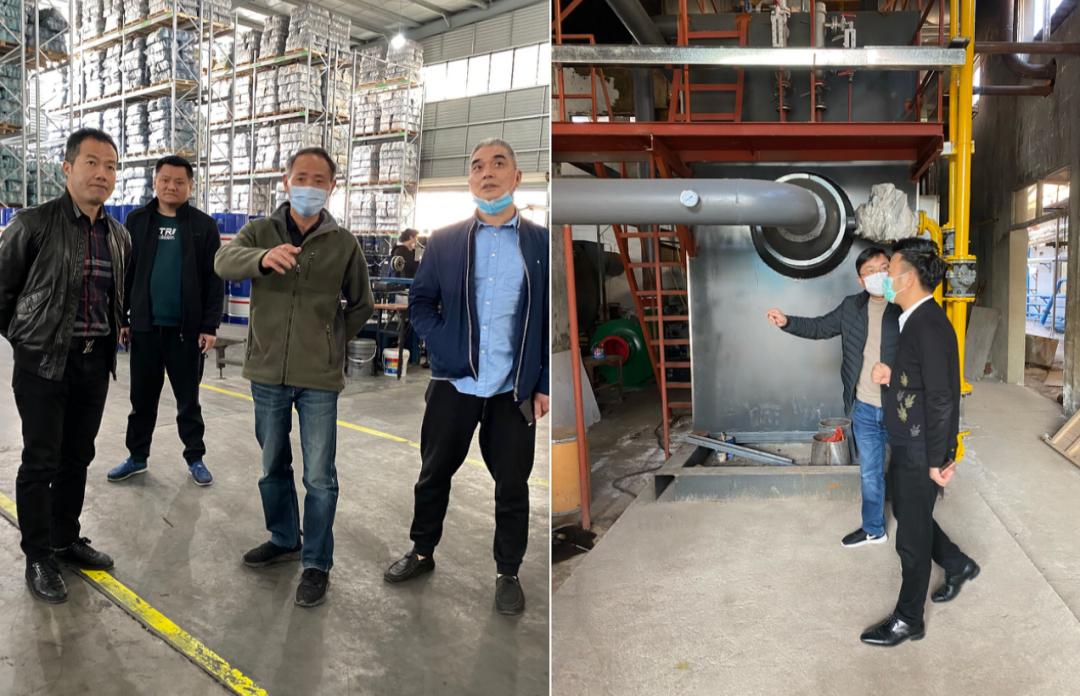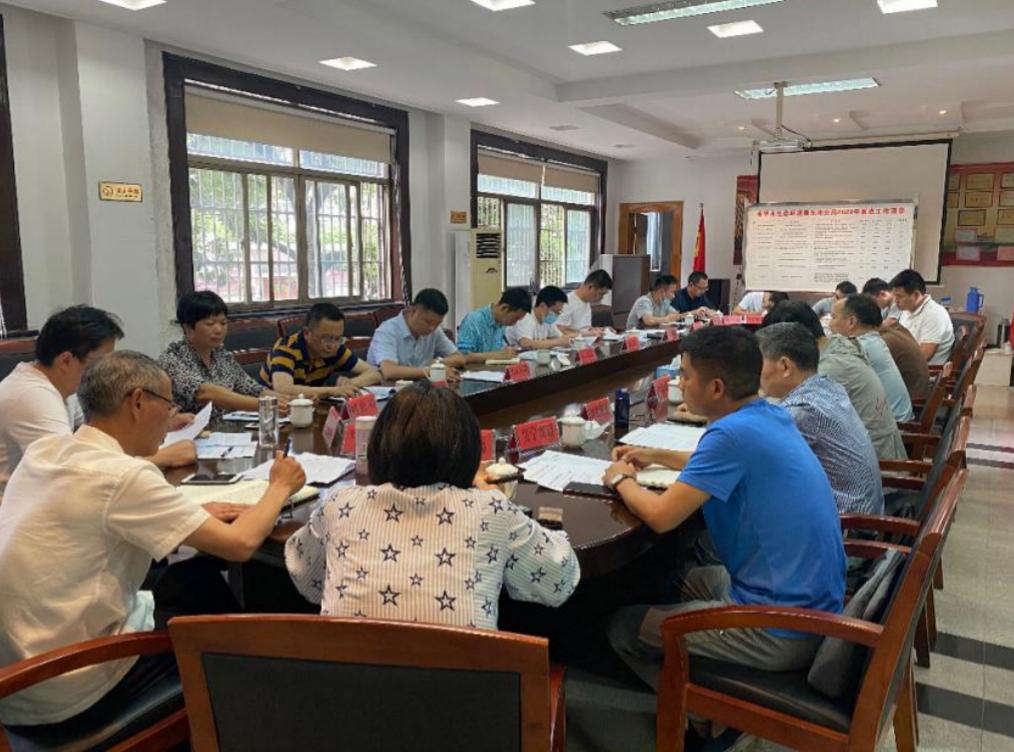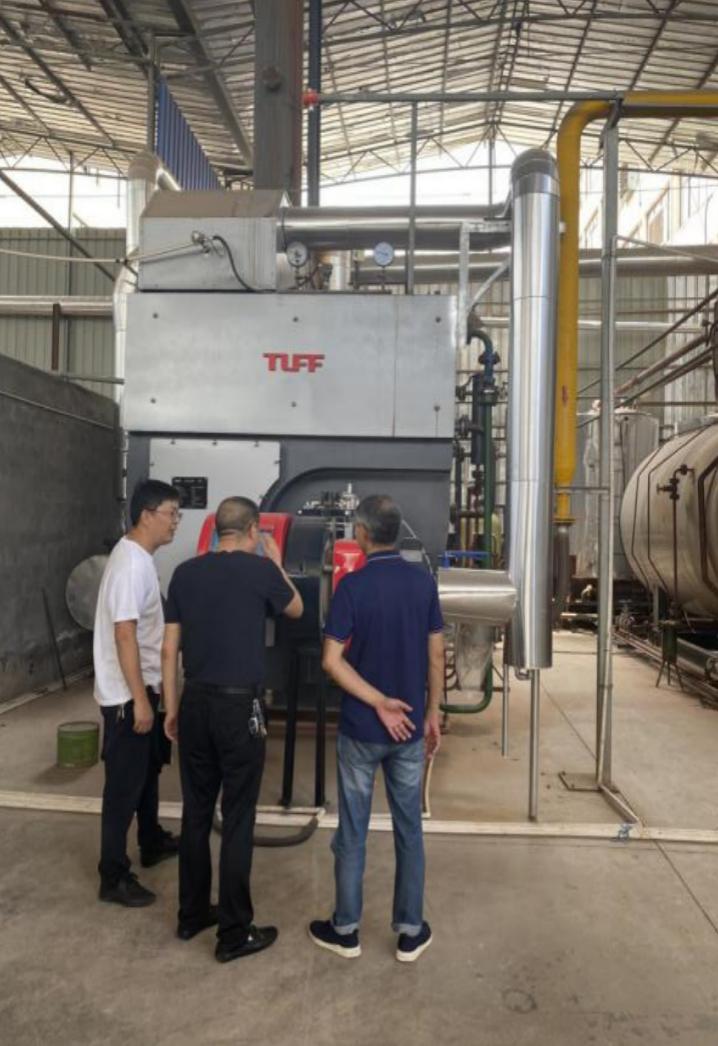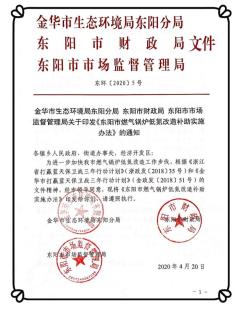Guide: Nitrogen oxides (NOx) are the common precursors of PM2.5 and ozone (O3). Since this year, the Dongyang Branch of the Jinhua City Ecological Environment Bureau has adopted measures such as “systematic investigation, mobilization and deployment, follow-up supervision, and fund guarantee” to ensure solid results. Promoting the low-nitrogen retrofit of gas-fired boilers, a total of 33 gas-fired boilers have been retrofitted, achieving “dual control and double reduction” of PM2.5 and O3 concentrations, and continuous improvement of ambient air quality. From January to July, the average concentration of PM2.5 was 23µg/m3, a year-on-year decrease of 14.8%, and the average concentration of O3 was 75µg/m3, a year-on-year decrease of 8.5%.
Nitrogen oxides (NOx) are the common precursors of PM2.5 and ozone (O3). Since this year, the Dongyang Branch of the Jinhua City Ecological Environment Bureau has adopted measures such as "systematic investigation, mobilization and deployment, follow-up supervision, and fund guarantee" to ensure solid results. Promoting the low-nitrogen retrofit of gas-fired boilers, a total of 33 gas-fired boilers were retrofitted, achieving “dual control and double reduction” of PM2.5 and O3 concentrations, and continuous improvement of ambient air quality. From January to July, the average concentration of PM2.5 was 23µg/m3, a year-on-year decrease of 14.8%, and the average concentration of O3 was 75µg/m3, a year-on-year decrease of 8.5%.
Enter the company to investigate, and the publicity is fully spread
Actively exert the strength of the Blue Sky Office and the Ecological Environment Department, divided into four groups, and explain the importance and necessity of low-nitrogen retrofitting of gas boilers to enterprises in the jurisdiction according to the target and task requirements of the "Dongyang City's 2020 Blue Sky Defence Work Plan" . Promote and guide the environmental protection and low-nitrogen transformation methods, implement the main responsibility for environmental protection of the enterprise, and control the low-nitrogen emission concentration of gas-fired boilers according to standards.


Strengthen the deployment of mobilization and improve subjective initiative
Develop a specific plan, convene all the leaders in charge of towns, towns and sub-districts involved in the remediation task for special deployment, and invite the market supervision bureau and the person in charge of the Jinhua Special Inspection Center to give guidance and explanation, and issue a deadline for governance requirements. Implement the responsibility of the towns and streets, and take full charge of the low-nitrogen transformation of gas boilers in the jurisdiction.

Strengthen tracking and supervision, and pay close attention to the actual effect of work
In order to accelerate the low-nitrogen transformation of gas-fired boilers, Dongyang Branch provides point-to-point assistance, guidance and implementation to the enterprises under its jurisdiction. During the inspection, it not only highlights the pertinence of guidance and helps the company identify outstanding problems that need to be resolved; at the same time, it pays attention to the timeliness of communication, and communicates and solves the common problems encountered during the inspection in a timely manner to form a good working situation of internal and external linkage. At the same time, it actively communicated with towns and streets, strengthened collaboration, and timely feedback on the low-nitrogen transformation of enterprise gas boilers to relevant towns and streets, so as to share responsibilities, tasks and problems.


Increase financial support to reduce the burden on enterprises
Promote the low-nitrogen transformation of gas boilers with funds to effectively reduce the burden on enterprises. The "Dongyang City Gas Boiler Low Nitrogen Renovation Subsidy Implementation Measures" was promulgated, and the amount of subsidy was determined based on the low-nitrogen conversion method and steam tonnage. Approximately 6 million yuan was allocated for the low-nitrogen conversion subsidy of gas-fired boilers. The “appropriation” procedure manages special funds to ensure the environmental benefits of low-nitrogen transformation projects.





























